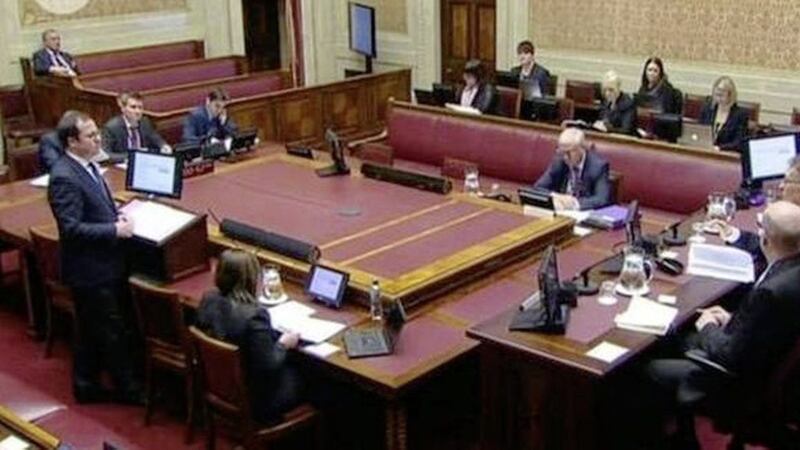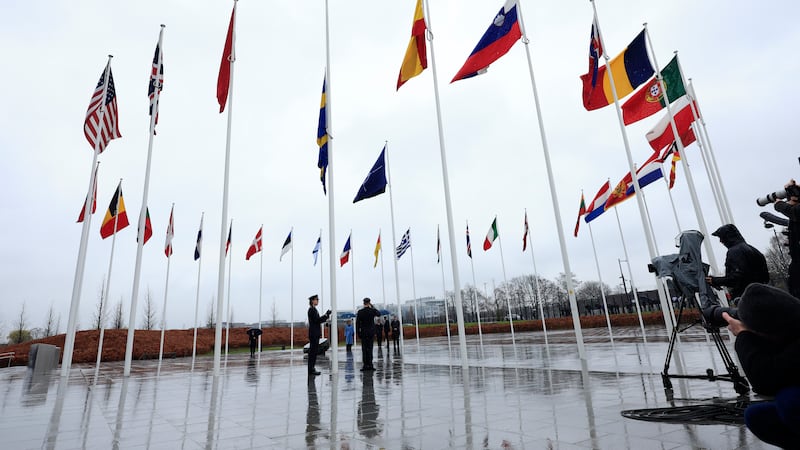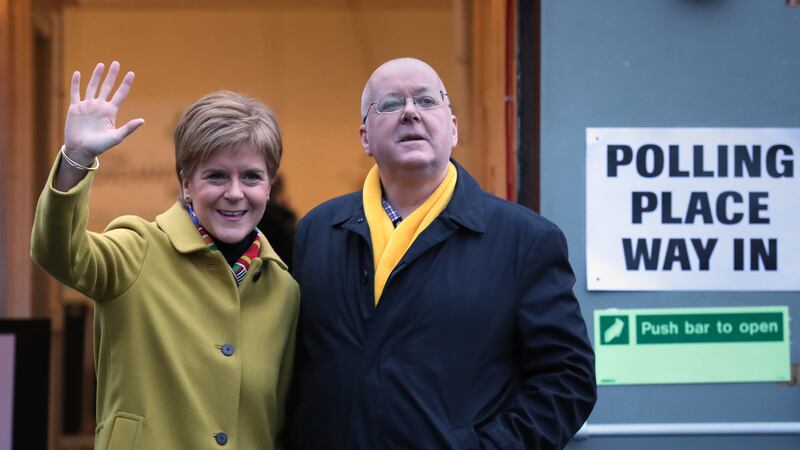OFFICIALS in Arlene Foster's department were told how offering grants to businesses would have delivered more renewable heat and avoided any risk of an overspend, the inquiry into the botched RHI scheme has heard.
Counsel to the inquiry Donal Lunny said a final report in June 2011 by the consultants employed by the Department of Enterprise, Trade and Investment (Deti) set out the pros and cons of various schemes designed to wean businesses and households away from fossil fuels.
Mr Lunny cited models prepared by advisory firm Cepa of the various proposals under consideration, where projected outputs in 2020 were compared.
He said that in terms of renewable heat generated, a challenge fund delivered most, while the overall cost was less and the carbon savings greater.
The inquiry counsel described the cost differences as "stark", while inquiry chairman Sir Patrick Coghlin noted that the projected outlay from a challenge fund was half that of a subsidy-driven RHI scheme.
"It is cheaper by the projected cost of a whole other challenge fund," agreed Mr Lunny, before going onto highlight that the difference was up to £200m.
Mr Lunny said Cepa's models' comparison demonstrated how an incorrect RHI subsidy level could lead to over-subsidisation and "less heat delivered per pound". However, the report suggested regular checks could remedy this.
Quoting the report, he said: "The normal method of dealing with this risk is to have regular, planned reviews of the subsidy level after a number of years of experience with the subsidy.
"In the event that Deti introduces an RHI, we recommend there is a review after two-to-three years."
Cepa's assessment pointed out that awarding grants rather than paying tariffs avoided over-subsidisation.
"We note that the challenge fund is much less exposed to this risk because subsidy levels are in effect reset each time a call for bids for the fund is made, and are set by those installing the technology rather than administratively," Mr Lunny quoted from the report.
Technical assessor to the inquiry Dr Keith MacLean noted that the challenge fund approach ensured "you only ever spend as much as you've released in each tranche".
"Precisely – you can't overspend in the sense of going over your budget with a challenge fund," Mr Lunny said.
The inquiry counsel said that while it was possible to have an "inefficient" and "imperfect" challenge fund, the Cepa assessment made it clear "you can't spend more money than you have".
Mr Lunny said the report did highlight a number of potential advantages beyond cost benefits for Deti adopting an RHI scheme like that operating in Britain, including "piggy-backing on their administration systems and the capturing of their learning".
He also quoted from the witness statement of Cepa's Mark Cockburn, who claimed it was ultimately Deti which that opted for a subsidy scheme over grants.
"The latter would've avoided the need to second-guess beneficiaries' costs and the ultimate uses of renewable heat," the statement said.
Mr Cockburn's understanding was that officials rejected the challenge proposal because "stakeholders would have struggled to accept it".
"Northern Ireland would not be facing the problems it is now if a challenge fund approach had been pursued," his statement said.
The inquiry counsel said the panel would want to explore why Deti officials adopted a scheme based on subsidies ahead of challenge fund.
Yesterday the inquiry also heard excerpts from the witness statement of Bernie Brankin, the head of Deti's finance branch.
She had raised concerns with her superiors in April and May 2011, saying she had "no experience" of the non-standard annually managed expenditure that funds from the Treasury were to be allocated.








